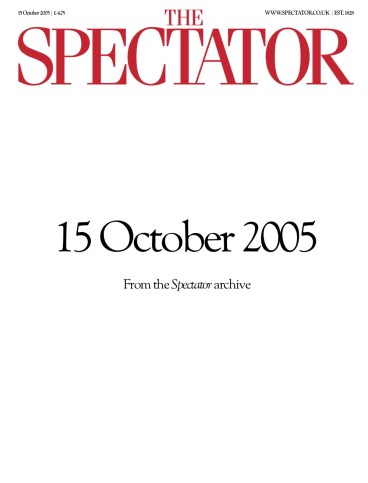Fissures within the urban landscape
Published recently in the Times, William Rees-Mogg’s contention (in a well-meaning if speciously argued piece on the Vatican’s continuing opposition to the ordination of self-confessed homosexuals) that the sexual proclivities of priests attracted to pre-pubertal children was ‘comparable to Oscar Wilde’s relations with London rent boys’ is typical of a fashionable misapprehension which confuses paedophila

